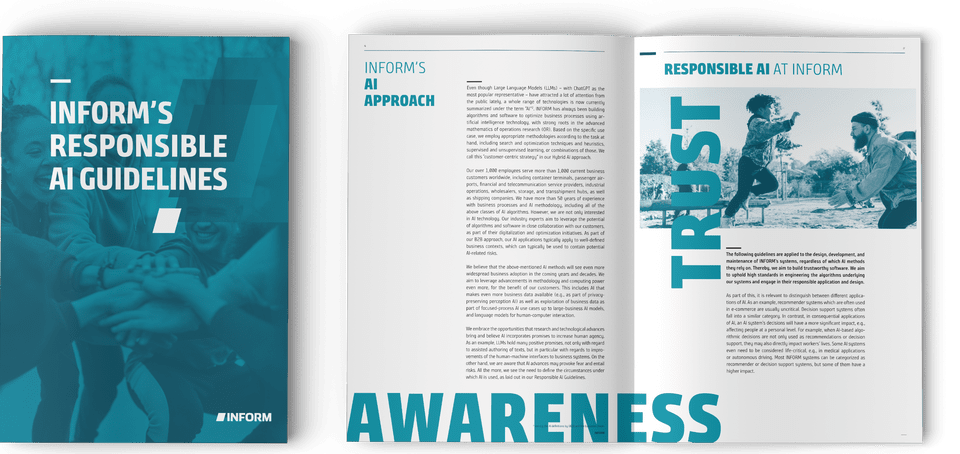
AI-powered methods for optimal initial inventory levels in Supply Chain Management
Learn how neural networks enable an initial inventory strategy in supply chain management.
We are convinced that AI will empower people to take action. In a business context, where AI applications will continue to grow in the coming years, it is designed to support people at work and improve decision-making in companies. This comes into play wherever sufficiently complex processes, possibly under time pressure, require far-reaching operational decisions. We can optimize or automate all these business processes using artificial intelligence.
INFORM is increasingly focusing on cloud-based solutions that give customers easy access to AI systems. Our software is not built on algorithms applied arbitrarily to different problems, but on algorithms that we have developed for the specific requirements and challenges of certain industries and applications. In doing so, we stand for a transparent, responsible approach to AI in which the responsibility always remains with the human in the loop.
AI and data are driving the next revolution. This is an inspiration for us to shape the coming age of Process AI. Process AI from INFORM will think along with people to skillfully manage workflows and realize business goals. We will see adaptive AI applications that generate comprehensive digital representations of the world, understand the processes they work on and support human employees in their everyday work environments.
With the help of data mining and process mining, these systems will learn from every step and share their new insights, point out upcoming challenges and automate decision-making processes to an appropriate extent. This is what we are working on to define the future of machine-based intelligence that is oriented towards and strengthens human agency.

Large Language Models (LLMs) have shown us what is possible. Whereas many remain impressed by their performance, we are actually only at the beginning. AI processes will be closely interlinked with the real world in order to continuously achieve better results, also in terms of a human-centered approach.
Our goal is trustworthy AI. That is why we have defined guidelines for the responsible use of AI. These are based on six central principles:
